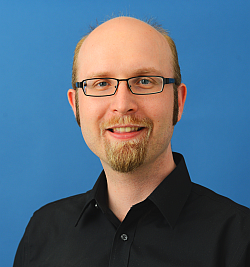Graduate Student Seminar
October 13, 2023
12:00 p.m. ET
Scaife Hall 105
October 13, 2023
12:00 p.m. ET
Scaife Hall 105
The use of modern artificial intelligence, machine learning, informatics, and other data mining approaches is a relatively new development in the chemical and materials domain. These techniques have been exceedingly successful in other application fields, and since there is no fundamental reason why they should not have a similarly transformative impact on chemical and materials research, there is now a concerted effort by the community to introduce them in this new context. These techniques hold tremendous promise for the practical realization of accelerated discovery, rational design, and inverse development of next generation materials systems. However, adapting techniques from other application domains for the study of chemical and materials systems requires a substantial rethinking and redevelopment of the existing methods. In this presentation, we will discuss our efforts along these lines.
 Hachmann is an Associate Professor of Chemical Engineering at the University at Buffalo (UB), the Director of the Engineering Science in Data Science graduate program, a Core Member of the UB Computational and Data-Enabled Science and Engineering graduate program, and a Faculty Member of the New York State Center of Excellence in Materials Informatics. He earned a Dipl.-Chem. degree (2004) after undergraduate studies at the universities of Jena and Cambridge, M.Sc. (2007) and Ph.D. (2010) degrees in Chemistry from Cornell University, and he conducted postdoctoral research at Harvard University before joining the UB faculty in 2014. The research of the Hachmann Group fuses (first-principles) molecular and materials modeling with virtual high-throughput screening and modern data science (i.e., the use of database technology, machine learning, artificial intelligence, and informatics) to advance a data-driven discovery and rational/inverse design paradigm in the chemical and materials disciplines. One of the centerpieces of the group’s efforts is the creation of an open, general-purpose software ecosystem for the data-driven design of chemical systems and the exploration of chemical space. This work was recognized with a 2018 NSF CAREER Award.
Hachmann is an Associate Professor of Chemical Engineering at the University at Buffalo (UB), the Director of the Engineering Science in Data Science graduate program, a Core Member of the UB Computational and Data-Enabled Science and Engineering graduate program, and a Faculty Member of the New York State Center of Excellence in Materials Informatics. He earned a Dipl.-Chem. degree (2004) after undergraduate studies at the universities of Jena and Cambridge, M.Sc. (2007) and Ph.D. (2010) degrees in Chemistry from Cornell University, and he conducted postdoctoral research at Harvard University before joining the UB faculty in 2014. The research of the Hachmann Group fuses (first-principles) molecular and materials modeling with virtual high-throughput screening and modern data science (i.e., the use of database technology, machine learning, artificial intelligence, and informatics) to advance a data-driven discovery and rational/inverse design paradigm in the chemical and materials disciplines. One of the centerpieces of the group’s efforts is the creation of an open, general-purpose software ecosystem for the data-driven design of chemical systems and the exploration of chemical space. This work was recognized with a 2018 NSF CAREER Award.
December 5 2025
12:45 PM ET
Materials Science and Engineering
"Bridging AI and Quantum Materials: Opportunities and Challenges” presented by Mina Yoon, Oak Ridge National Laboratory
7500 Wean Hall
December 10 2025
8:30 AM - 5:00 PM ET
Materials Science and Engineering
Molecular Engineering of Soft Materials Symposium
The symposium will highlight cross-disciplinary research across CMU departments, with the goal of advancing soft materials research.
5201 Scott Hall
December 11 2025
4:00 PM ET
Materials Science and Engineering
M.S. Program Information Session
Join us online to learn more about becoming part of the graduate student community through our master's degree programs.
Virtual